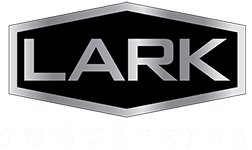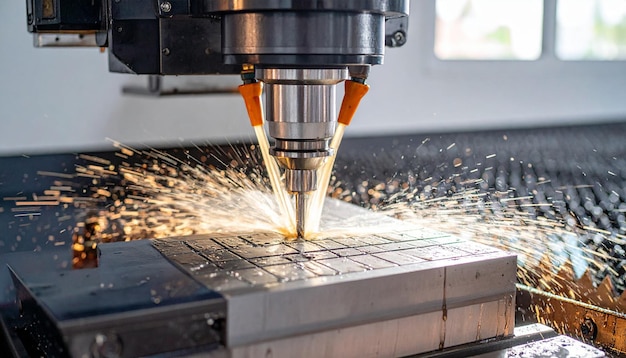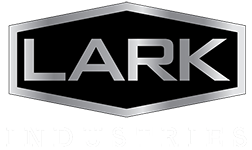The medical device industry is a rapidly evolving sector, and Mexico is emerging as a significant player in this field. With its strategic location, skilled workforce, and favorable economic conditions, Mexico has become a hub for medical precision manufacturing. This article delves into the trends and innovations shaping the future of medical device manufacturing in Mexico, highlighting the key factors that make it an attractive destination for medical manufacturing companies. As the global demand for medical devices increases, Mexico’s role in this industry is expected to grow, driven by technological advancements and strategic partnerships.
The country’s competitive advantages are not only limited to its geographical benefits but also extend to its robust infrastructure and supportive government policies. Mexico’s manufacturing sector has been diversified and strengthened over the years, providing a solid foundation for the growth of the medical device industry. Additionally, the increasing focus on quality standards and regulatory compliance has enhanced the credibility of Mexican manufacturers on the global stage.
Strategic Advantages of Manufacturing in Mexico
by Spencer Watson (https://unsplash.com/@thebrownspy)
Mexico’s geographic proximity to the United States, one of the largest markets for medical devices, is a significant advantage. This strategic location reduces shipping times and costs, making it easier for medical device manufacturers to meet the demands of the North American market. Moreover, Mexico’s participation in trade agreements such as the United States-Mexico-Canada Agreement (USMCA) facilitates seamless cross-border trade, enhancing the appeal of manufacturing in Mexico. The proximity not only benefits logistics but also enables closer collaboration between manufacturers and clients, allowing for quicker adjustments and innovations.
Furthermore, Mexico’s growing network of industrial parks and free trade zones provides a conducive environment for manufacturing operations. These zones offer infrastructure benefits, including modern facilities and services tailored to meet the needs of the medical device industry. The presence of these specialized zones underscores Mexico’s commitment to supporting the growth of the medical manufacturing sector, making it an even more attractive destination for international companies.
Skilled Workforce and Competitive Costs
The availability of a skilled labor force is another crucial factor driving the growth of medical device manufacturing in Mexico. The country boasts a large pool of engineers and technicians with expertise in CNC machining and medical component manufacturing. Mexican universities and technical institutes are continually producing graduates with the necessary skills to thrive in this industry, contributing to a dynamic and capable workforce. Furthermore, labor costs in Mexico are competitive compared to those in the United States and Europe, enabling medical manufacturing companies to maintain high-quality standards while optimizing production costs.
In addition to competitive labor costs, the Mexican workforce is known for its adaptability and openness to new technologies. Continuous training programs and collaborations with educational institutions ensure that workers are equipped with the latest skills and knowledge needed to handle advanced manufacturing processes. This dedication to workforce development not only improves efficiency but also fosters innovation, allowing Mexican manufacturers to stay ahead in the rapidly evolving medical device industry.
Trends in Medical Precision Manufacturing
by Robina Weermeijer (https://unsplash.com/@averey)
The landscape of medical precision manufacturing in Mexico is continuously evolving. Several key trends are shaping the future of this sector, driving innovation and efficiency. As technological advancements accelerate, manufacturers are adopting new methods and processes to enhance their capabilities and meet the rising demands of the global market.
These trends are not only about adopting new technologies but also about integrating them into existing processes to create more efficient and sustainable manufacturing systems. The convergence of various technologies is fostering a new era of manufacturing, where precision and speed are prioritized without compromising quality.
Automation and CNC Machining
Automation is transforming the medical device manufacturing industry, and Mexico is no exception. Companies are increasingly adopting advanced manufacturing technologies such as CNC machining to enhance precision and efficiency. CNC machining allows for the production of complex medical components with high accuracy and consistency, meeting the stringent quality standards of the medical device industry. As a result, CNC machining medical component manufacturers in Mexico are gaining a competitive edge in the global market. The integration of automation not only reduces human error but also increases production speed, allowing companies to scale efficiently.
Moreover, the adoption of Industry 4.0 technologies, such as the Internet of Things (IoT) and data analytics, is further optimizing CNC machining processes. By leveraging real-time data, manufacturers can monitor equipment performance, predict maintenance needs, and streamline operations to reduce downtime and costs. This data-driven approach enhances overall productivity and positions Mexican manufacturers as leaders in the high-tech medical device manufacturing sector.
Sustainable Manufacturing Practices
Sustainability is becoming a focal point for medical manufacturing companies in Mexico. As environmental concerns grow, manufacturers are adopting eco-friendly practices to reduce their carbon footprint. This includes using renewable energy sources, minimizing waste, and implementing recycling programs. By embracing sustainable manufacturing practices, companies not only contribute to environmental conservation but also enhance their brand reputation and appeal to environmentally conscious consumers. The push towards sustainability is also driven by international regulatory requirements, prompting Mexican manufacturers to innovate in their processes.
Additionally, sustainable practices extend beyond environmental considerations to include social responsibility initiatives. Companies are increasingly focusing on fair labor practices and community engagement, ensuring that their operations benefit local communities. This holistic approach to sustainability not only fulfills ethical obligations but also strengthens company culture and employee satisfaction, contributing to long-term success.
Innovations in Medical Device Manufacturing
by Piron Guillaume (https://unsplash.com/@gpiron)
Innovation is at the heart of the medical device industry, and Mexico is witnessing significant advancements in this area. Several innovations are poised to revolutionize medical device manufacturing in Mexico, offering new opportunities for growth and development. As the industry continues to evolve, these innovations are expected to play a crucial role in shaping the future of healthcare and improving patient outcomes.
The pace of technological change in the medical device industry requires manufacturers to be agile and forward-thinking. By investing in new technologies and fostering a culture of innovation, Mexican companies are positioning themselves to lead in this dynamic sector.
Additive Manufacturing and 3D Printing
Additive manufacturing, commonly known as 3D printing, is gaining traction in the medical device industry. This technology enables the production of customized medical devices with intricate designs, reducing lead times and costs. In Mexico, medical device manufacturers are increasingly investing in 3D printing to produce prosthetics, implants, and surgical instruments tailored to individual patient needs. The flexibility and versatility of additive manufacturing make it a valuable tool for innovation in the medical device sector. This approach not only enhances customization but also allows for rapid prototyping, accelerating the development of new products.
Moreover, the use of biocompatible materials in 3D printing is expanding the possibilities for personalized medicine. The ability to create patient-specific devices and implants has the potential to improve treatment outcomes and reduce recovery times. As research and development in this area continue, Mexico is well-positioned to become a leader in the application of additive manufacturing for medical purposes.
Collaborative Robotics
Collaborative robotics, or cobots, are transforming the manufacturing landscape by working alongside human operators to enhance productivity and safety. In Mexico, medical device assembly companies are integrating cobots into their production lines to streamline processes and reduce labor-intensive tasks. These robots can handle repetitive tasks with precision, allowing human workers to focus on more complex and value-added activities. The adoption of collaborative robotics is expected to drive efficiency and innovation in medical device manufacturing in Mexico. By fostering a harmonious human-machine interaction, companies can achieve higher levels of output and quality.
Furthermore, the flexibility of cobots makes them ideal for adapting to various tasks and production changes. This adaptability is crucial in the medical device industry, where product lines and specifications can change rapidly in response to new medical advancements and regulations. By investing in collaborative robotics, Mexican manufacturers are enhancing their ability to respond to market demands and maintain a competitive edge.
The Role of Government and Industry Support
The Mexican government recognizes the potential of the medical device industry and is actively supporting its growth through various initiatives. These include investment incentives, tax breaks, and the development of specialized industrial parks for medical device manufacturing. Additionally, collaboration between industry stakeholders, research institutions, and government bodies fosters innovation and knowledge sharing, further strengthening Mexico’s position as a leader in medical device manufacturing. This collaborative ecosystem is crucial for sustaining growth and addressing the challenges faced by the industry.
Government support also extends to regulatory frameworks that facilitate the smooth operation of medical manufacturing companies. By streamlining approval processes and ensuring alignment with international standards, the government is creating an environment conducive to innovation and expansion. These efforts are essential for attracting foreign investment and fostering domestic entrepreneurship in the medical device sector.
Precision CNC Machining for Medical Components
At the heart of Lark Industries’ capabilities is its high-precision CNC machining, tailored for the demanding standards of the medical device sector. Operating out of Mexico, the company specializes in producing complex components with tight tolerances and superior surface finishes—critical for devices such as surgical instruments, implants, and diagnostic equipment. By integrating advanced CNC systems and quality control protocols, Lark ensures consistency, traceability, and compliance with international standards such as ISO 13485. Their commitment to precision not only supports innovation but also meets the growing global demand for reliable, high-quality medical parts.
Investment in Research and Development
Investment in research and development (R&D) is crucial for driving innovation in the medical device industry. In Mexico, both public and private sectors are investing in R&D to develop cutting-edge technologies and improve manufacturing processes. This focus on innovation enables Mexican medical device manufacturers to stay competitive in the global market and meet the evolving needs of healthcare providers and patients. The collaboration between academia and industry in R&D initiatives is fostering a culture of continuous improvement and discovery.
Moreover, R&D investments are not only focused on product development but also on process optimization and quality assurance. By enhancing manufacturing techniques and ensuring compliance with stringent quality standards, Mexican companies are building a reputation for reliability and excellence. This commitment to R&D is a key driver of growth and a differentiator in the highly competitive medical device industry.
Challenges and Opportunities
While Mexico offers numerous advantages for medical device manufacturing, the industry also faces challenges that need to be addressed. These include regulatory compliance, supply chain disruptions, and the need for continuous workforce training. However, these challenges also present opportunities for growth and improvement. By proactively addressing these issues, Mexican manufacturers can strengthen their position in the global market and ensure long-term success.
The ability to navigate challenges effectively is a testament to the resilience and adaptability of the Mexican medical device industry. By leveraging their strengths and addressing weaknesses, manufacturers can continue to thrive in an ever-changing landscape.
Advanced Manufacturing with Collaborative Robotics
Lark Industries is a pioneer in implementing collaborative robotics (cobots) into its medical device production lines, streamlining repetitive processes while enhancing safety and efficiency. These cobots work alongside skilled technicians to assemble delicate components, allowing Lark to scale production without compromising accuracy. This blend of human expertise and automation reflects a growing trend in Mexico’s manufacturing landscape, where innovation drives smarter workflows and faster time-to-market for complex medical technologies.
Regulatory Compliance and Quality Standards
Adhering to international regulatory standards is essential for medical device manufacturers in Mexico to access global markets. Companies must navigate complex regulatory landscapes and ensure compliance with quality standards such as ISO 13485. By investing in compliance and quality assurance, Mexican manufacturers can enhance their credibility and expand their market reach. This commitment to quality not only builds trust with international partners but also ensures the safety and efficacy of medical devices.
In addition to regulatory compliance, maintaining high quality standards is critical for meeting customer expectations and achieving operational excellence. Continuous training and certification programs for employees help ensure that quality is a priority at every stage of the manufacturing process. By fostering a culture of quality, Mexican companies can differentiate themselves in the competitive medical device market.
Supply Chain Resilience
The COVID-19 pandemic highlighted the importance of supply chain resilience in the medical device industry. To mitigate risks, manufacturers in Mexico are diversifying their supply chains and adopting digital technologies to enhance visibility and efficiency. Building resilient supply chains ensures continuity of production and strengthens the industry’s ability to respond to future disruptions. This proactive approach to supply chain management is critical for minimizing the impact of unforeseen events and maintaining steady growth.
Furthermore, the integration of digital technologies such as blockchain and advanced analytics is enhancing supply chain transparency and traceability. By improving visibility across the supply chain, manufacturers can make informed decisions and quickly adapt to changes in demand or supply conditions. These advancements are crucial for maintaining competitive advantage and ensuring the reliability of medical devices.
Sustainable and Scalable Production Solutions
As sustainability becomes increasingly important in the medical manufacturing world, Lark Industries has adopted eco-conscious practices across its operations. The company uses environmentally friendly lubricants, reduces material waste through precise machining strategies, and is actively investing in renewable energy initiatives at its production facilities. Furthermore, its scalable infrastructure and lean manufacturing philosophy enable clients to grow without sacrificing environmental responsibility. This positions Lark not just as a manufacturing partner—but as a forward-thinking contributor to Mexico’s rising global reputation in sustainable medical production.
For readers interested in learning more about why Mexico is becoming a top destination for medical device manufacturing, this article provides valuable industry insights and supporting data: https://www.medicaldesignandoutsourcing.com/why-medical-device-manufacturers-are-investing-in-mexico/
Conclusion
The future of medical device manufacturing in Mexico is bright, with trends and innovations driving growth and efficiency in the industry. From automation and CNC machining to sustainable practices and collaborative robotics, Mexican manufacturers are at the forefront of technological advancements. With continued government support, investment in R&D, and a focus on regulatory compliance, Mexico is poised to become a global leader in medical device manufacturing. As the industry evolves, medical manufacturing companies in Mexico have the opportunity to capitalize on emerging trends and innovations, positioning themselves for long-term success in the competitive global market.
By embracing these changes and overcoming challenges, Mexico’s medical device industry is set to play a pivotal role in shaping the future of healthcare. As new technologies and practices continue to emerge, Mexican manufacturers are well-positioned to lead the way in delivering high-quality, innovative medical devices to meet the needs of patients and healthcare providers worldwide. Through collaboration and a commitment to excellence, the industry is poised to achieve new heights and contribute significantly to global healthcare advancements.





